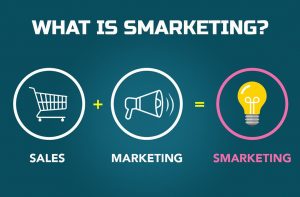Introduction:
In today’s fast-paced business world, technology plays a key role in a company’s success. From communication and collaboration tools to data analysis and management, there are many fundamental technologies that companies must implement to stay competitive. Used correctly, technology can greatly improve the success of an organization.

What is business technology?
Electronic devices and systems that assist employees with their tasks are considered business technology. In order to organize and prioritize their work, employees use computers, internet systems, printers, mobile devices, and software applications. Furthermore, business technology can be used to divide work as well, so that employees are given different objectives to assist with large tasks.
How do businesses use technology?
There are several ways in which businesses use technology:
1) Payroll: It is the process of transferring payment to employees and contractors during each pay period using computers, specialized software, and schedule payroll programs. Several of these processes are automated. While most business owners and their teams end up doing everything manually, you can save a lot of time by simply implementing the right technology. Technologies such as computers and automated software allow businesses to communicate with banking services quickly and automatically. A fully automated system allows employees to deposit funds directly into their accounts and receive payments almost instantly. HRMS is a type of HR software that enables the management of various HR functions through the use of information technology. Watch video here.

2) Inventory management: Data storage systems allow businesses to create elaborate spreadsheets to record and search inventory. These software programs may contain active classification systems that notify employees when certain inventory is in the warehouse or in transit. Enterprise resource planning (ERP) is a type of software that organizations use to manage day-to-day business activities such as accounting, procurement, project management, risk management and compliance, and supply chain operations. An ERP system links many business processes and allows data to flow between them.
3) Data storage: Data storage systems allow companies to store records, financial reports, and corporate data in secure databases that employees can access from virtually anywhere. For manufacturing companies, data storage systems help managers track orders, manage inventory, and monitor general production.
4) Security: Security software helps protect electronic content and prevents unauthorised users and input. It also helps ensure that employees are adhering to company safety standards. Technology improves the security of your company’s funds and information, protecting you from cybersecurity threats and malware on the Internet. Security technologies allow organisations to fine-tune their security posture and invest as much as they need in their protection plans. Watch video here.
5) Communication: Communication software allows companies to discuss projects and plans with their employees, even remotely. Some systems also have optimization options for companies with only remote workers. Technology enables employees to communicate faster and more conveniently, wherever they are. Tools such as online chat rooms and phone services allow employees to complete many tasks from home, allowing companies to collaborate with their employees regardless of their location. Having an intranet is like having an office in the digital world where people can collaborate easily.
6) Hiring: With the Internet, businesses can access job boards to attract talent from around the world. Networks and computer systems give managers access to software that creates flyers, job descriptions, and planning tools for talent searches. HRMS refers to a suite of software that organizations use to manage HR functions, especially recruitment and onboarding.
7) Task allocation: Both offline and online software systems help managers assign jobs to their employees. They can assign tasks virtually through custom websites and use internet chat rooms to discuss objectives. Watch video here.
8) Marketing: When deciding how to market a product, technology enables businesses to advertise using computers, printers, telephones, and email services, and bring their marketing strategies to the Internet, print shops, and other businesses. The Internet and computers also allow employees to market in other ways, such as: social media, forums and blogs.
9) Sales: Customer Relationship Marketing (CRM) helps you manage your sales funnel by presenting data in graphical format and also gives you the ability to forecast sales. CRM’s are an excellent tool to help manage and grow your sales. Watch video here.
10) Automation: Business process automation is a way to increase the efficiency of an organization by leveraging digital technology to execute business processes with minimal human intervention.By shifting the responsibility of completing routine tasks from humans to machines, business process automation frees up employees to focus more time on value-added activities. Taking a business on autopilot mode is the greatest advantage of technology. Watch video here.
Conclusion:
Digital transformation is already changing the world of business. Technology is the tool that takes your business to the next level in the fastest and best way possible. Whether you are a CEO, entrepreneur or small business owner, technology solutions are the ultimate tools to enable your business to achieve unprecedented growth.


